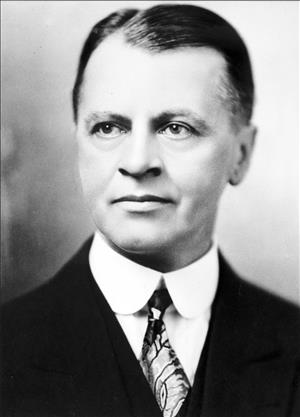On July 13, 1931, voters recall Mayor Frank E. Edwards from office for firing Seattle City Light Superintendent James D. "J.D." Ross (1872-1939). The vote is 125,000 to 15,000, reflecting Ross's popularity as well as suspicion of corporations seeking to control electric power. Through the rest of the decade, politicians' positions on public power became a litmus test for winning office.
On March 10, 1931, on the eve of a City Council election, Mayor Edwards fired Ross, the popular head of City Light since 1911. Reportedly, Edwards answered a dare during a late-night political meeting as a test of his authority over Ross's popularity. Voters expressed immediate objections by passing a ballot measure giving City Light control over its own construction projects (which polls had predicted would fail) and by electing pro-City Light city council members.
The following day, the Municipal Utilities Protection League, a citizens' group based in the North End of Seattle, began circulating a recall petition against Edwards. Only 25,000 signatures were needed, but 200,000 were gathered. The president of the League was Marion Zioncheck (1901-1936), a former student leader at the University of Washington who would later win election to Congress.
On July 14, 1931, the City Council appointed Robert Harlin to succeed Edwards as mayor. Harlin quickly reappointed Ross to the superintendency at City Light.

